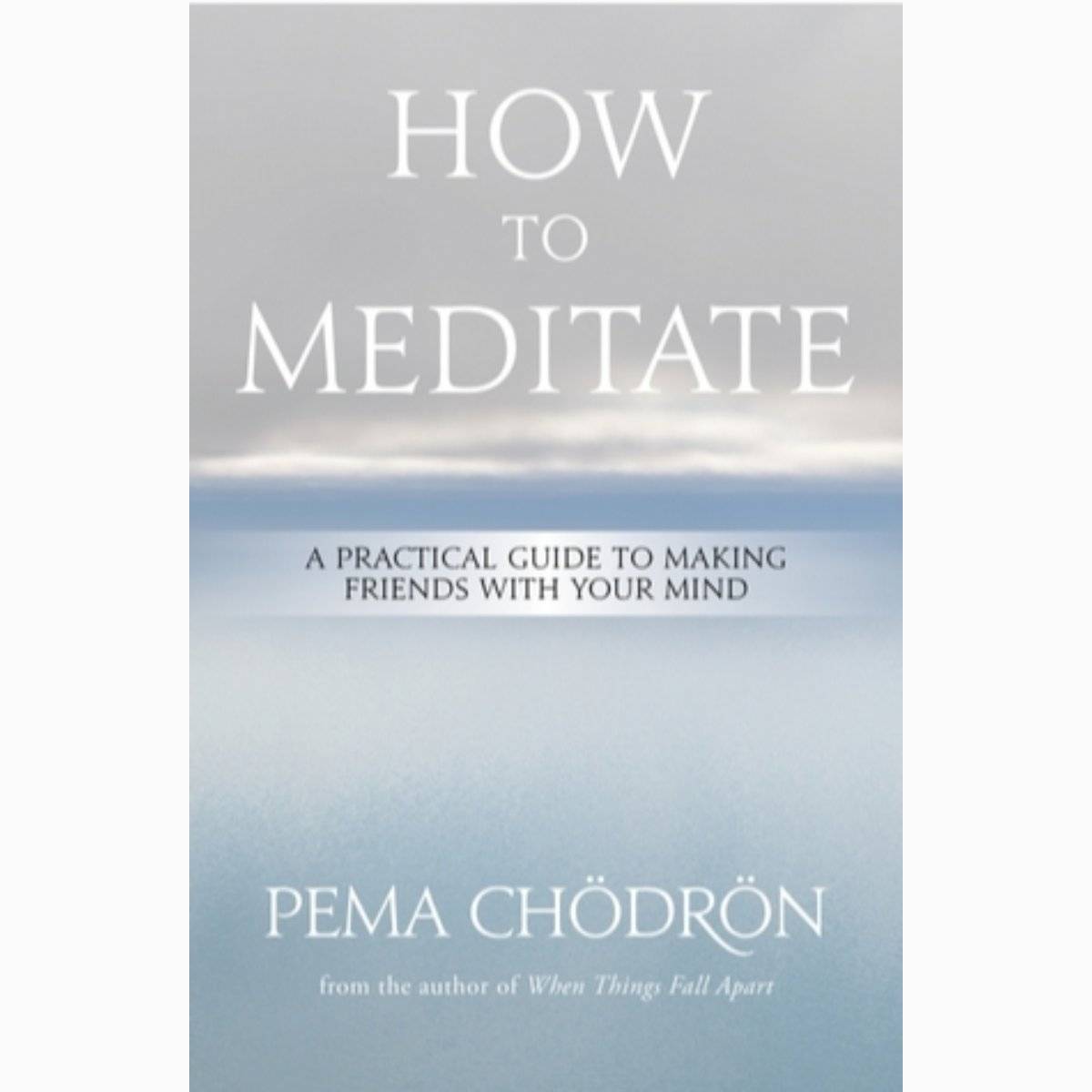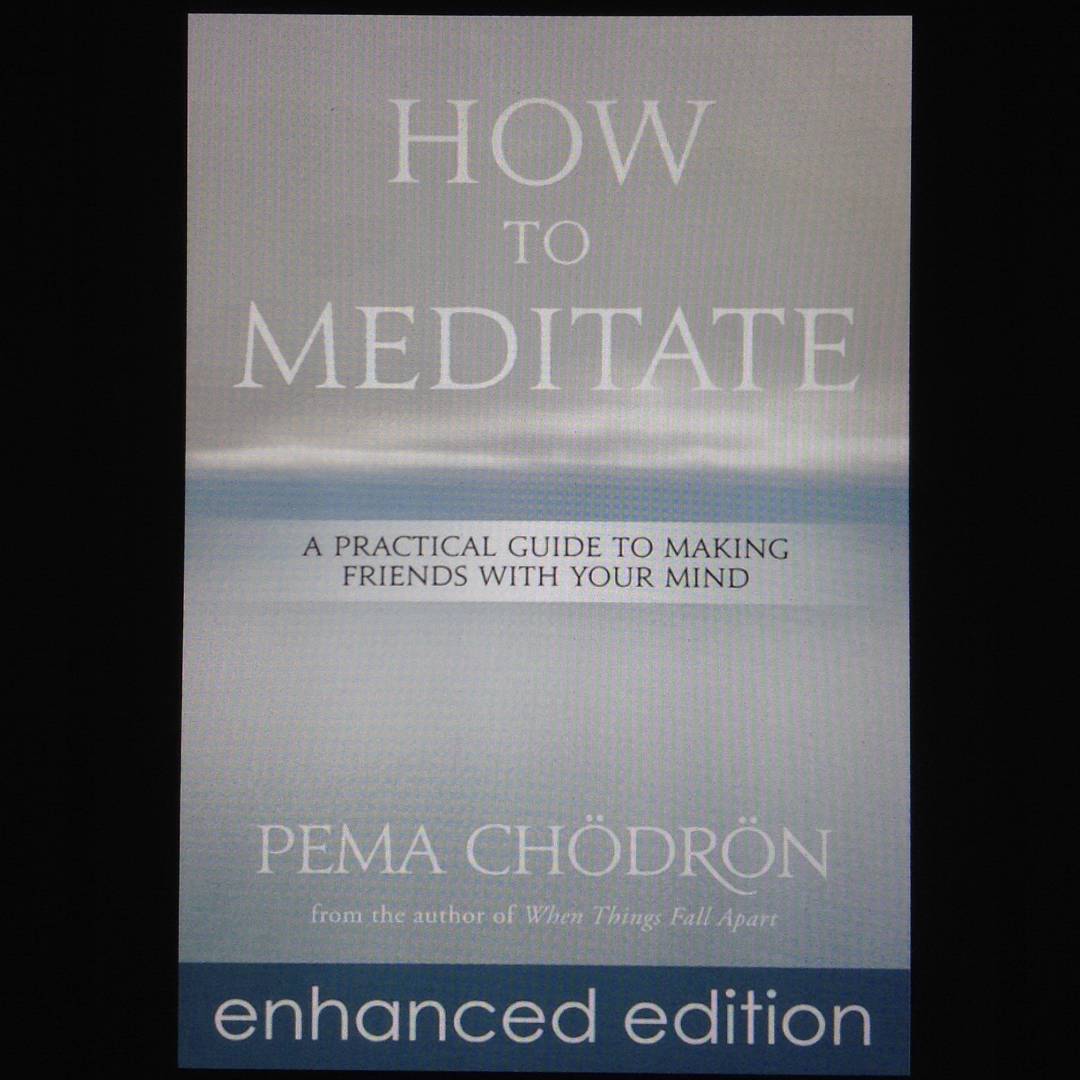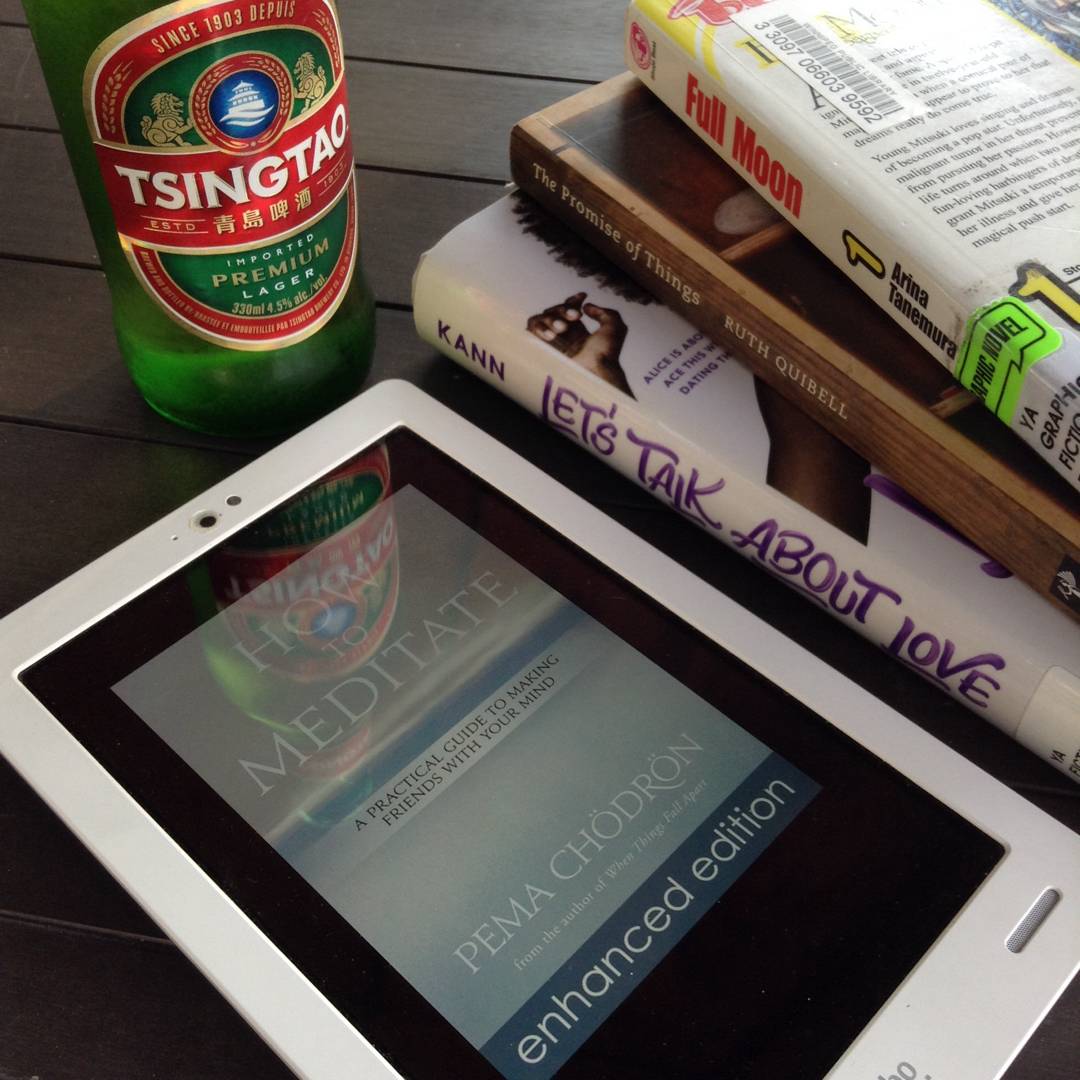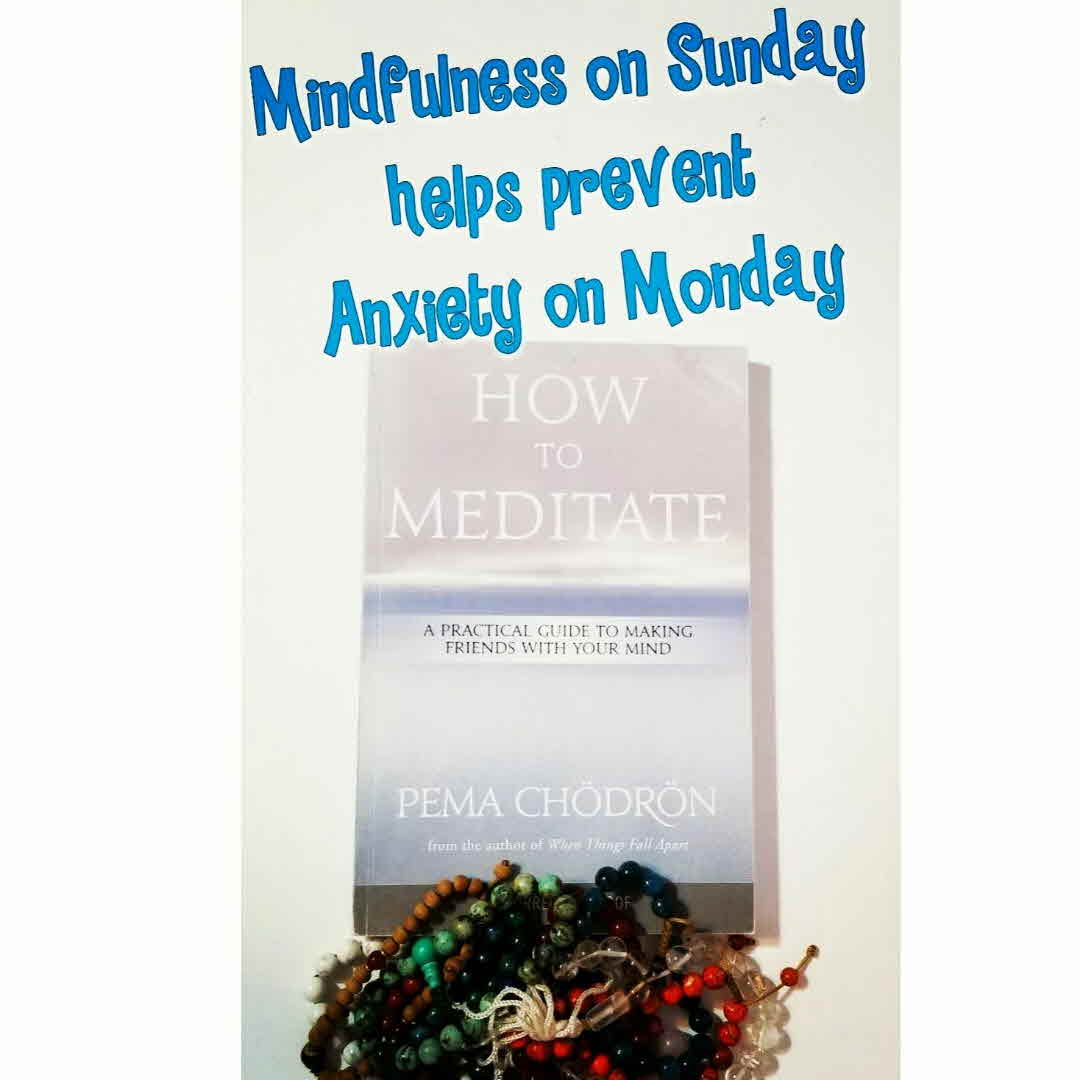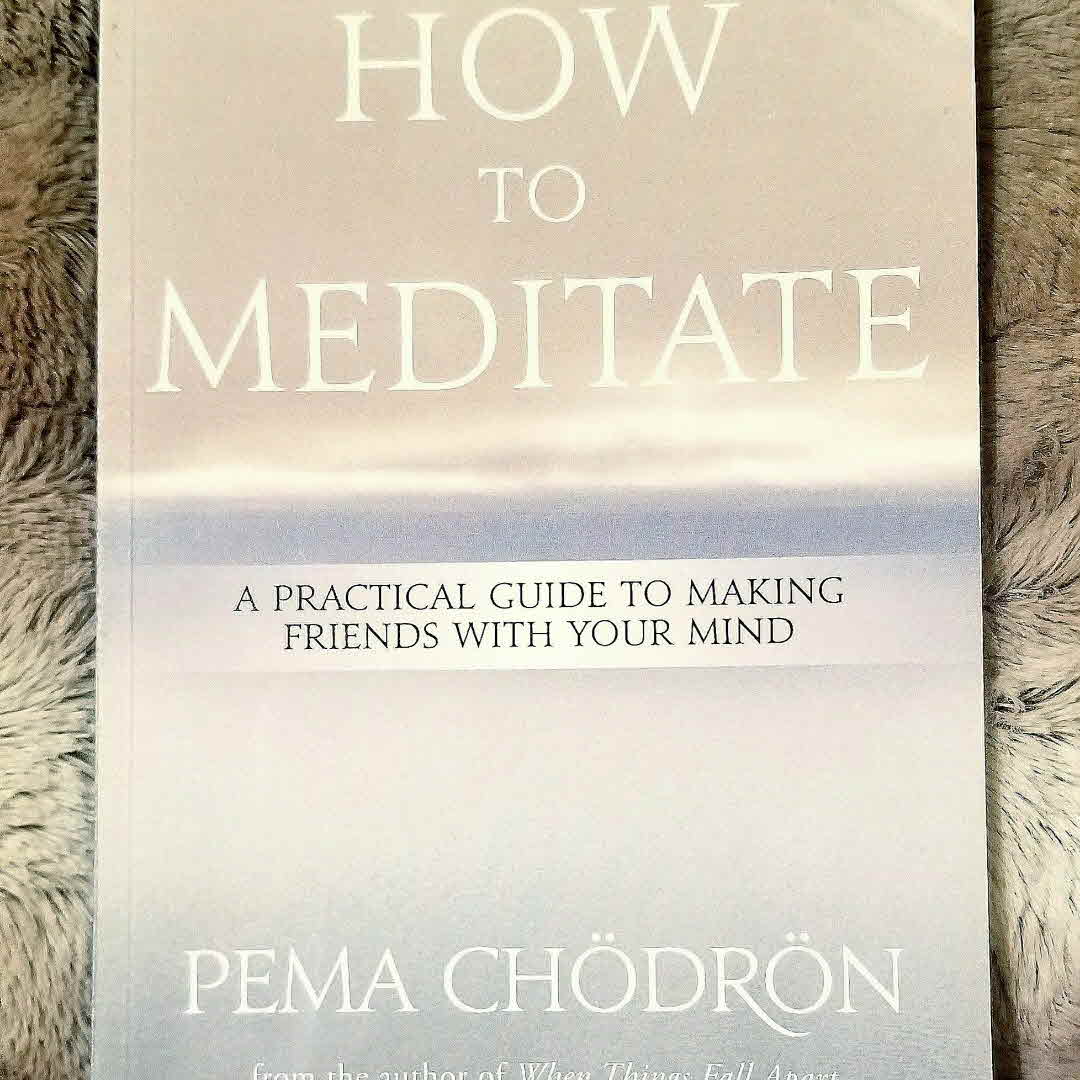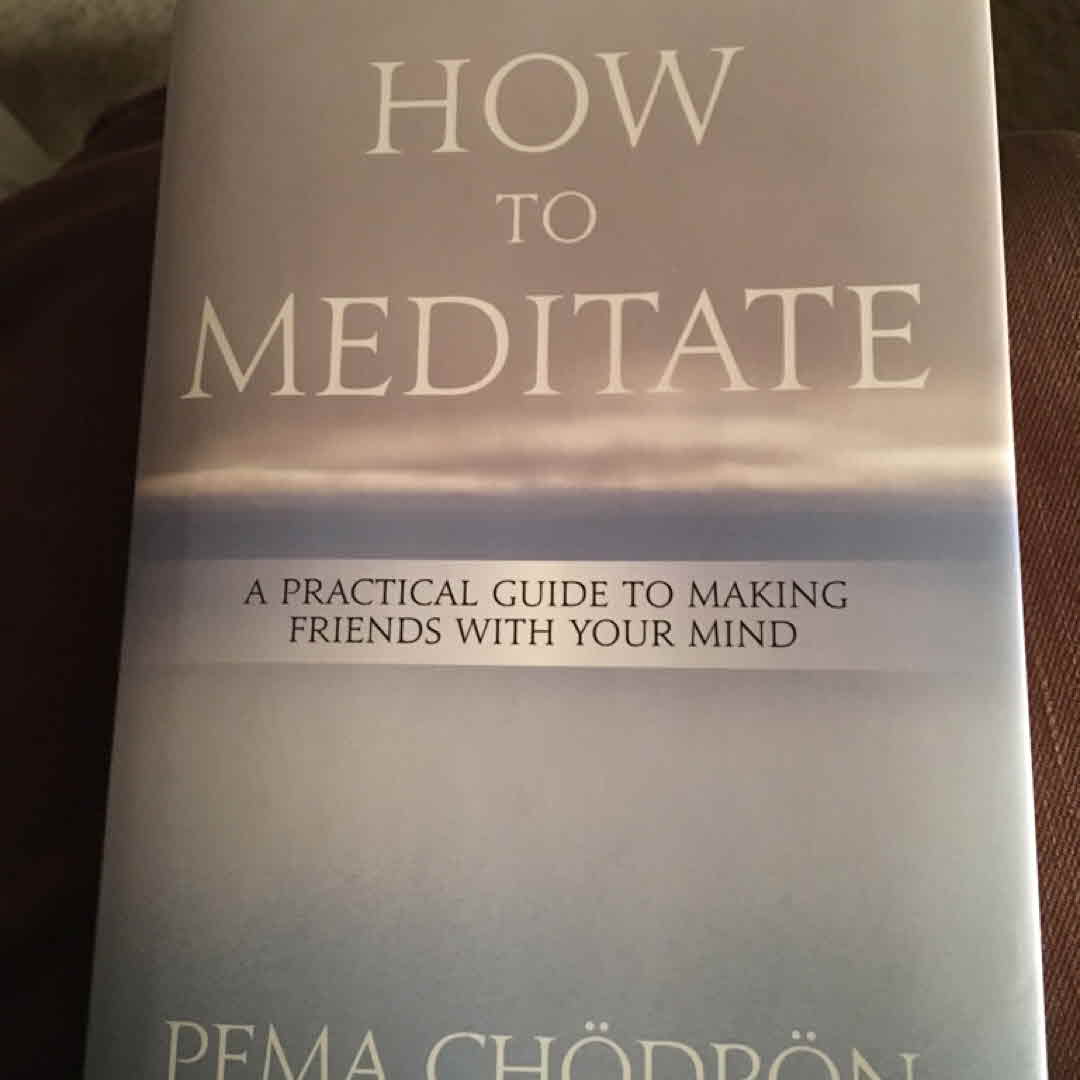How to Meditate: A Practical Guide to Making Friends with Your Mind | Pema Chödrön
***How to Meditate Has Been Named One of Library Journal s Best Books of 2013*** Pema Chodron is treasured around the world for her unique ability to transmit teachings and practices that bring peace, understanding, and compassion into our lives. With How to Meditate, the American-born Tibetan nun presents her first book exploring in depth what she considers the essentials for a lifelong practice. When we look for a meditation teacher, we want someone who has an intimate knowledge of the path. That's why so many have turned to Pema Chodron, whose gentle yet straightforward guidance has been a lifesaver for both first-time and experienced meditators. With "How to Meditate," the American-born Tibetan Buddhist nun presents her first book that explores in-depth what she considers the essentials for an evolving practice that helps you live in a wholehearted way. More and more people are beginning to recognize a profound inner longing for authenticity, connection, compassion, and aliveness. Meditation, Pema explains, gives us a golden key to address this yearning. This comprehensive guide shows readers how to honestly meet and openly relate with the mind to embrace the fullness of our experience as we discover: The basics of meditation, from getting settled and the six points of posture to working with your breath and cultivating an attitude of unconditional friendlinessThe Seven Delights-how moments of diffi culty can become doorways to awakening and loveShamatha (or calm abiding), the art of stabilizing the mind to remain present with whatever arisesThoughts and emotions as "sheer delight"-instead of obstacles-in meditation Here is in indispensable book from the meditation teacher who remains a first choice for students the world over. Pema is one of our most beloved and helpful teachers practical, compassionate, and wise. How to Meditate is a great way to take her teachings to heart and develop a meditation practice. Jack Kornfield, author of "A Path with Heart" and "A Lamp in the Darkness" This new book is a great compilation of meditation instruction which she has personal given to many of her students over the years. These instructions have brought so much help to others that it has made her one of the most loved and revered Buddhist teacher in this modern world. With a brilliant mind and an absolutely cheerful attitude toward life, she practices what she teaches. She is a great support and friend to thousands of readers, and I am very sure that this book will help many in their everyday lives, as she makes this genuine attempt to reach us all. Dzigar Kongtrul Rinpoche Excerpt The mind is very wild. The human experience is full of unpredictability and paradox, joys and sorrows, successes and failures. We can t escape any of these experiences in the vast terrain of our existence. It is part of what makes life grand and it is also why our minds take us on such a crazy ride. If we can train ourselves through meditation to be more open and more accepting toward the wild arc of our experience, if we can lean into the difficulties of life and ride of our minds, we can become more settled and relaxed amid whatever life brings us. There are numerous ways to work with the mind. One of the most effective ways is through the tool of sitting meditation. Sitting meditation opens us to each and every moment of our life. Each moment is totally unique and unknown. Our mental world is seemingly predictable and graspable. We believe that thinking through all the events and to-dos of our life will provide us with ground and security. But it s all a fantasy, and this very moment, free of conceptual overlay, is completely unique. It is absolutely unknown. We ve never experienced this very moment before, and the next moment will not be the same as the one we are in now. Meditation teaches us how to relate to life directly, so that we can truly experience the present moment, free from conceptual overlay.Table of Contents Part One: The Technique of MeditationPreparing for Practice and Making the CommitmentStabilizing the MindThe Six Points of PostureBreath: The Practice of Letting GoAttitude: Keep Coming BackUnconditional FriendlinessYou Are Your Own Meditation InstructorPart Two: Working With ThoughtsThe Monkey MindThe Three Levels of Discursive ThoughtThoughts as the Object of MeditationRegard All Dharmas as Dreams Part Three: Working With Emotions Becoming Intimate with Our EmotionsThe Space within the EmotionEmotions as the Object of MeditationGetting Our Hands DirtyHold the ExperienceBreaking with the EmotionDrop the Story and Find the Feeling Part Four: Working with Sense Perception The Sense PerceptionsThe Interconnection of All Perceptions Part Five: Opening Your Heart to Include EverythingGiving Up the StruggleThe Seven DelightsThe Bearable Lightness of BeingBeliefsRelaxing with GroundlessnessCreate a Circle of PractitionersCultivate a Sense of WonderThe Way of the Bodhisattva"
